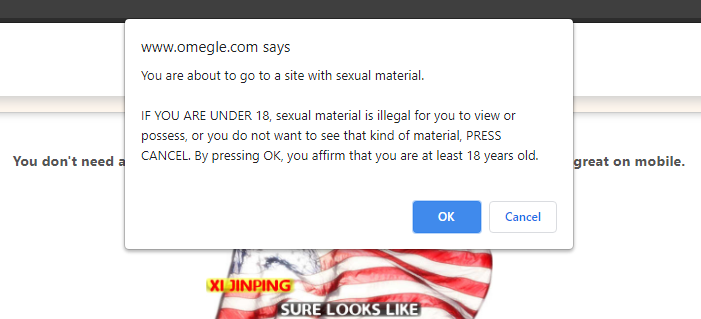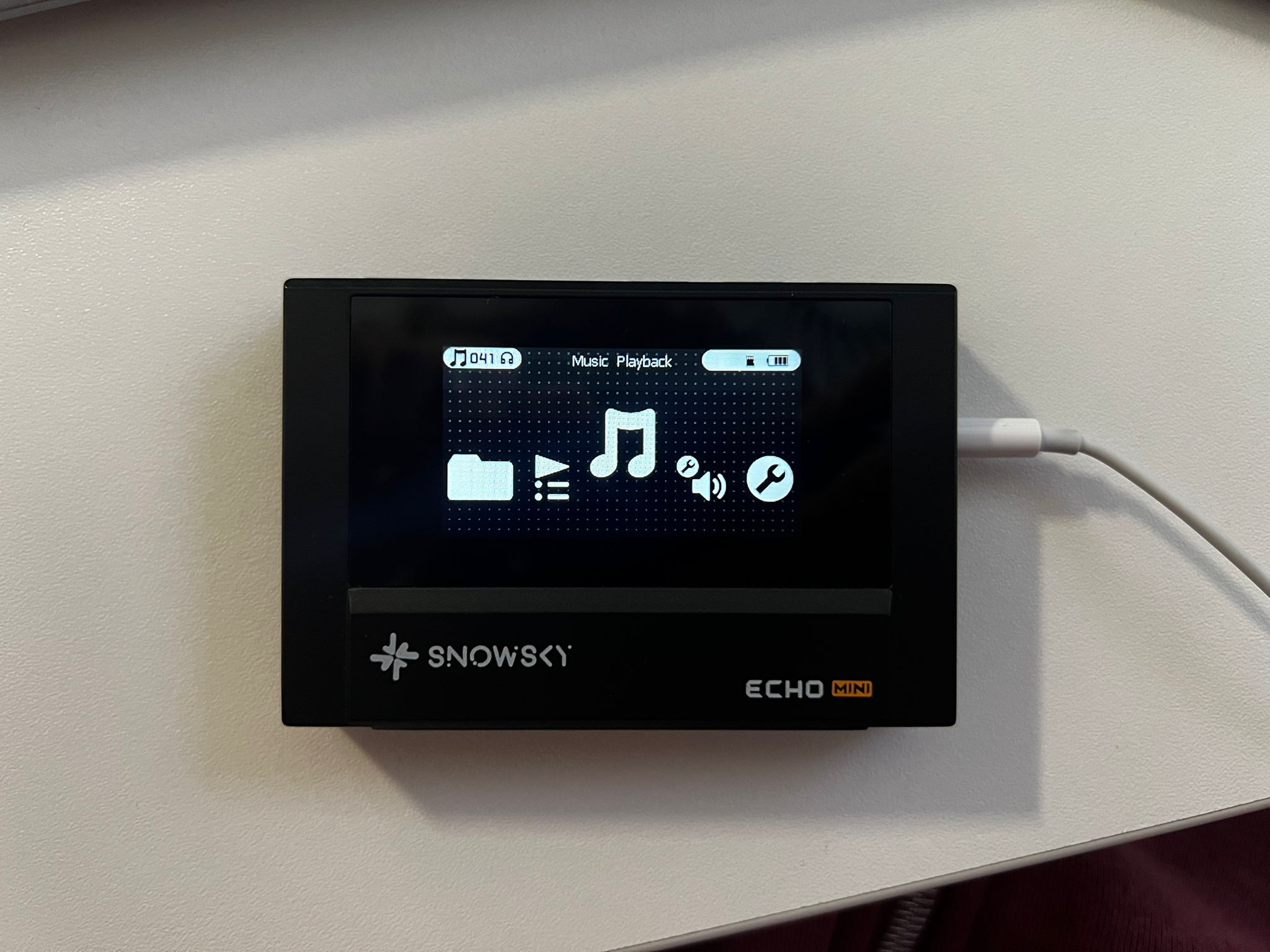The seemingly indefinite period of self-isolation has made us do all sorts of things on the internet. From conducting Zoom meets in pajamas to raving, meditating, arranging movie nights, and what have you, people have had no shortage of things to do to keep themselves occupied in this pandemic, and it’s all been done on the virtual vine.
But now, more than a year later, the pandemic has led to such mental fatigue and boredom in our lives that many are discarding the common advice of “Don’t talk to strangers” and flinging themselves to do exactly the opposite. The results of this are hardly surprising. With little supervision and moderation, many have ended up on those sleazy websites that seem well-intentioned but are anything but.
One such website is Omegle that has raised many eyebrows (and hairs on end) over the reports of the sort of things that people tend to do when they know they’re with strangers and, therefore, unaccountable. Here, we explain all the little details of the Omegle Chat and see why this hitherto little-used website has become such a dangerous element of society.
What is Omegle?
Omegle is a website that is designed to pair strangers randomly with each other through text and video chat. Created in 2009 by the 18-year old Leif K. Brooks, Omegle is only a 1design overhaul away from being another Chatroulette – the OG of seamy chat room websites. Both have similar features, in that they are free to use, require no registration of any sort, and offer surprising (often unpleasant) online experiences.
With chat names restricted to just “You” and “Stranger”, anonymity is maintained for the most part, unless one is naive enough to give their personal information away. Those who’re aware of Omegle know the sort of things that you can expect from strangers there. But the unwitting surfer may end up being sucked into the black hole that is Omegle chat with strangers constantly asking for ASL (short for ‘Age, Sex, and Location’: a common phrase that people start the chat with) and accosting nudes. This is not something to be surprised at. Wherever accountability is not done away with, the need for instant sexual gratification and extreme adult content tends to be the first thing off the leash.
In 2012, unmonitored chats were introduced to Omegle, though only for those aged 13 and above. A couple of years later, a College student chat or ‘Dorm chat’ feature was introduced, allowing users with their email addresses ending with .edu to connect with their peers from other colleges. A few extra steps were also taken to ensure that there were no bots on the site anymore, but that is something that’s always been an issue with Omegle. Even a first-time user can tell the presence of bots on the site, and that’s been quite a thorny issue for many.
How (un)safe is Omegle?
Just like the real world, the internet has a dark underbelly too waiting to rear its ugly head upon unsuspecting and careless innocents. If one is not wary enough, unsolicited encounters linger only a few clicks away, and – make no mistake – some of them can leave quite an impression on the psyche of those who’re at the receiving end of things.
Since Omegle requires no sign up or registration, many wayward, but otherwise innocent, teenagers have made it their go-to website to look for some ‘fun’ with strangers. But Omegle is a hotbed for pathological elements of various kinds – sexual predators, pedophiles, online prowlers, white supremacists, and people who like to prey on others.
All this should have been a deterrent in and of itself to use Omegle Chat. But people, especially teenagers and youngsters, tend to ignore such warnings until the gravity of such situations make themselves felt. But kids aren’t only at the receiving end of things. In fact, through sites like Omegle, many of them are finding out what all is possible when they’re not accountable for their actions.
A recent BBC investigation discovered that the site’s video chat feature was being used by prepubescent kids exposing themselves on live streams and touching themselves explicitly, all in front of strangers. That said, there are various investigations taking place for child abuse on Omegle, peppered with reported incidents of cyberbullying, scams, racism, and porn adverts.
Kids meeting strangers
Though Omegle gets traffic worldwide, it is estimated that in the UK alone, 3.7 million visits were made in December by people under the age of thirty-four, most of them teenagers.
Though the site states that it is not meant for anyone under 13 and under (and that parental permission is required for those under 18), there’s no way to enforce such restrictions. Anyone can simply click on “I’m 18” and have full access without any proof or authentication.
Many teenagers and prepubescent kids are known to go to Omegle in groups, looking for ways to channel their developing libido in all the wrong places. If you’re on Omegle, there’s a very high chance that your first few pairings with strangers is going to go south very quickly, as there’s no shortage of strangers advertising extreme pornography and real-life sexual acts.
Being an all-anonymous site for its users, there’s no way to pick an age category either. Older people are paired with kids all the time, further endangering the latter. Even the website itself declares in no uncertain terms – “Predators have been known to use Omegle”.
https://twitter.com/rauhlslegendary/status/1374875519876009987
It is not uncommon for such predators to engage in seemingly benign conversations with children at first, trying to coddle them into supplying more information and plan to meet up with them in real life. This is a horrifying prospect that leads to extortion and abuse of all sorts.
Is there no moderation?
As mentioned before, Omegle claims it is not meant for anyone under 13 and necessitates parental guidance and permission for those under 18. But none of that is implemented, nor are there any means by which it is even possible. Moderation exists only for a few types of chat, and but that is not guaranteed.
Other than the basic text chat feature, Omegle provides two video chat features with increasingly levels of explicit content that you can stomach. Picking either of them will lead to a new screen where you’ll be paired with a stranger for a video chat.
The first is the ‘Adult’ option (a mere tautology on such a website). When clicked, Omegle only shows a dialog box that says “You are about to go to a site with sexual material”. One need only to click on “OK” to access it.

If you choose this, you will be redirected to a superchat site and are more or less guaranteed to get partial or full nudity, and extremely explicit content that doesn’t just border on the pornographic, it is pornography.
The other Video option is the “Unmoderated section”. In this section, you get a similar inconsequential message telling you that you are more likely to encounter sexual behavior here. In reality, no option is safe on Omegle as sexual predators have infiltrated just about every stream, be it text chat or the different video options.
Privacy concerns!
Other than being bombarded with unwarranted explicit content and strangers soliciting nudes and sexual stimulation, the website appears as though it’s been put together by a hack. Omegle’s website design and layout are not only outdated, they are a security liability.
According to a Cyberwise report, once a user is on Omegle, their IP address, chat timings, and their chat log (including all personal information disclosed within it) are saved on Omegle’s servers for four months. Any hacker worth his salt can easily pry open the flaws and make away with users’ personal information, including their IP addresses that can reveal their locations.
Using a VPN won’t get you far, especially when you’re up against an expert hacker, making it almost impossible to use the site with any level of assurance. On top of that, if a user gets comfortable enough with a stranger to expose their personal information, there’s no stopping said stranger to take screenshots of the chat log and post them elsewhere. That poses a level of threat to one’s identity that can potentially lead to blackmail, cyberbullying, extortion, and mental abuse.
Why has Omegle become so popular?
Chat rooms like Omegle ended well before they could take off as social media platforms eclipsed their presence. But the pandemic fatigue has bred desperation within people, especially young teens who’ve been denied access to a social life, which has led to a resurgence of such sites.
For many teens (even kids) nowadays, the idea of ‘fun’ involves chatting with strangers online and delving into Omegle’s adult sections. Many are playing at being Omegle celebrities by staying put on the site for days on end. Many TikTokers and influencers, deprived of any interesting content, have taken it to Omegle to meet up with fans, even throwing birthday parties in order to increase their fan following. The Gen Z may consider Omegle a boon in these trying times, but the darker side of such unmoderated and unsecured chat rooms should not go unrecognized.
Omegle works, essentially, on the shock factor of it all. Filming people’s reactions and being surprised at the stranger’s shenanigans sure does have an element of thrill and excitement for young people looking to kill time. But there’s a fine line between having an amusing time with friends and being sucked into a hopeless situation with predatory individuals necessitating police investigations, especially on Omegle.
Though the trend may seem light-hearted and done in the name of good fun, there’s literally no end to the list of dangers that being on a site as unmoderated and perilous as Omegle brings. Whether you are an adult or not, we cannot stress enough the need to stay as far away from Omegle as possible and talk to your loved ones, especially children to do the same, for your own as well as your loved ones’ mental and physical well being.







Thanks for the feedback that you manage to work with given example.